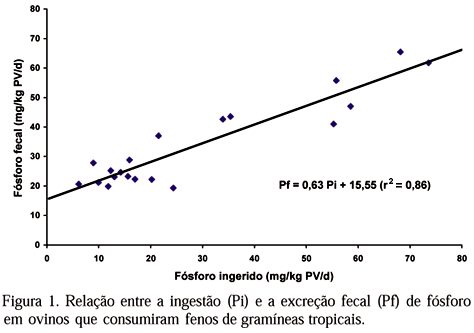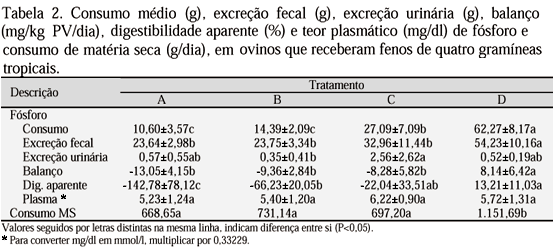One experiment was conducted using five adult sheep fed on four tropical grass hays to determine phosphorus (P) retention. The experiment consisted of four periods of 21 days (14 days adaptation and seven days faeces collection). The treatments were: A) molasses grass (Melinis minutiflora), B) brachiaria grass (Brachiaria decumbens), C) coastcross grass (Cynodon dactilon) and D) Guinea grass (Panicum maximum). Phosphorus concentrations were 0.05%, 0.07%, 0.11% and 0.18% for treatments A, B, C and D, respectively. The effects of treatment, period and animal were evaluated by ortogonal polynomials and the contrasts by F test. Negative P balances were produced in treatments A, B and C (-13.05, -9.36 and -8.26mg/kg LW/day, respectively) which were not significantly different from each other. Positive P balance of 8.14mg/kg LW/day was produced in treatment D, which was significantly higher (P<0.05) than treatments A, B and C. Endogenous losses of 15.5mg P/kg LW/day were estimated using regression analysis. The average P retention coefficient of the hays was 0.37. A relationship between P intake and P balance showed that an intake of approximately 44mg P/kg LW/day was necessary to produce a zero P balance.
Sheep; phosphorus; tropical grasses




